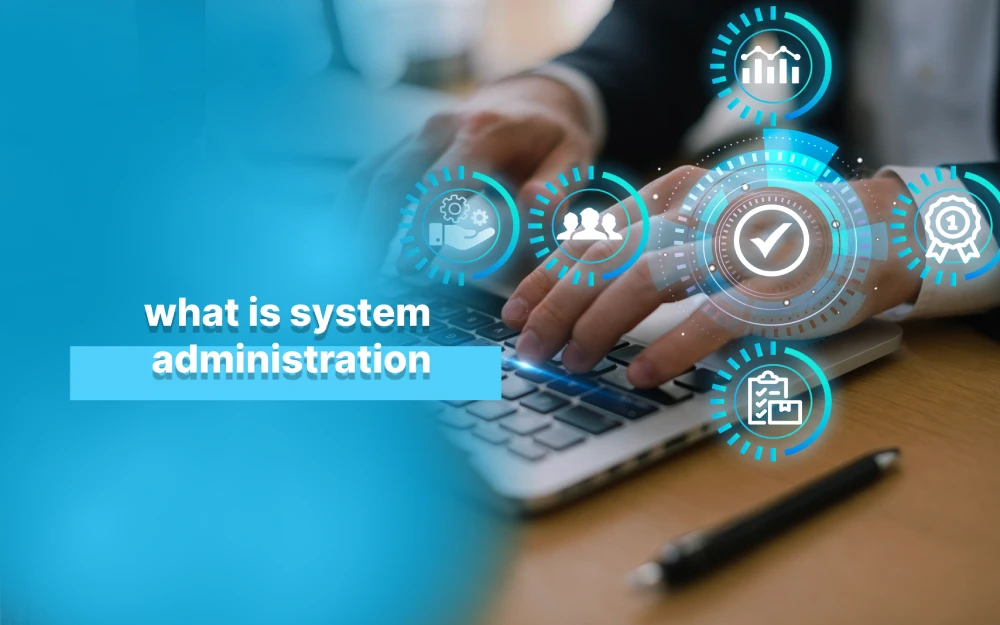What is a Scrum Master? In the realm of agile project management, the role of the Scrum Master is pivotal. Scrum Masters ensure that Scrum—a popular agile framework for managing complex projects—is understood and...
How do I become an iOS developer?
How do I become an iOS developer? The world of mobile apps is booming, and iOS apps are at the forefront of innovation and design. If you've ever dreamt of turning your ideas into reality and building the next...
php developer job description
php developer job description In the ever-evolving landscape of web development, PHP continues to hold a prominent place. As one of the most widely used server-side scripting languages, PHP powers millions of websites...
A Guide to Hiring a Business Analyst:
In today's fast-paced business environment, organizations need to make informed decisions based on accurate data and thorough analysis. A Business Analyst (BA) plays a crucial role in this process, bridging the gap...

What is system administration?
What is System Administration?
System administration is a crucial aspect of managing and maintaining the IT infrastructure of an organization.
It involves a wide range of tasks and responsibilities aimed at ensuring the smooth and efficient operation of computer systems, networks, and servers.
This blog will explore the key aspects of system administration, the roles and responsibilities of a system administrator, the essential skills required, and the importance of system administration in today’s technology-driven world.
Outsource systems administrators
Understanding System Administration
Definition of System Administration
System administration refers to the process of managing, configuring, and maintaining computer systems and networks to ensure their reliable and efficient operation.
It encompasses a variety of tasks, including installing and updating software, managing user accounts, configuring hardware and software, monitoring system performance, and troubleshooting issues.
Role of a System Administrator
A system administrator, often referred to as a sysadmin, is a professional responsible for the upkeep, configuration, and reliable operation of computer systems and servers.
Sysadmins ensure that the IT infrastructure of an organization runs smoothly, securely, and efficiently. They play a critical role in maintaining the backbone of an organization’s IT operations.
Key Responsibilities of a System Administrator
- Installing and Configuring Software and Hardware
One of the primary responsibilities of a system administrator is to install and configure software and hardware. This includes setting up operating systems, application software, and network devices such as routers and switches. Sysadmins ensure that all systems are properly configured to meet the organization’s requirements.
- Managing User Accounts and Permissions
System administrators manage user accounts and permissions, ensuring that users have the appropriate access to resources and systems. This involves creating and managing user accounts, setting up password policies, and assigning roles and permissions based on job responsibilities.
- Monitoring System Performance
Monitoring system performance is a critical aspect of system administration. Sysadmins use various tools and techniques to monitor the performance of servers, networks, and applications. They identify and address performance bottlenecks, ensuring that systems run efficiently and meet performance requirements.
- Performing Regular Backups
Data backup is essential to prevent data loss in case of hardware failures, software issues, or security breaches. System administrators are responsible for performing regular backups of critical data and ensuring that backup systems are functioning correctly. They also manage the restoration of data when necessary.
- Ensuring System Security
System security is a top priority for system administrators. They implement security measures such as firewalls, antivirus software, and intrusion detection systems to protect systems from unauthorized access, malware, and other security threats.
Sysadmins also apply security patches and updates to keep systems secure.
- Troubleshooting and Resolving Issues
When issues arise, system administrators are responsible for troubleshooting and resolving them promptly. This includes diagnosing hardware and software problems, addressing network connectivity issues, and resolving user-reported problems. Effective troubleshooting skills are essential for minimizing downtime and ensuring system reliability.
- Automating Tasks
Automation is a key aspect of modern system administration. Sysadmins use scripting languages and automation tools to automate repetitive tasks, such as system updates, backups, and user account management. Automation improves efficiency and reduces the likelihood of human error.
- Documenting Systems and Processes
Documentation is crucial for maintaining an organized and efficient IT environment. System administrators document system configurations, procedures, and policies to ensure that information is readily available for troubleshooting, maintenance, and auditing purposes. Clear documentation also aids in knowledge transfer within the IT team.
Essential Skills for System Administrators
- Technical Proficiency
System administrators must have a strong technical foundation in operating systems (such as Windows, Linux, and macOS), networking, and hardware. They should be proficient in scripting languages such as Python, PowerShell, or Bash to automate tasks and streamline processes.
- Problem-Solving Abilities
Effective problem-solving skills are essential for system administrators. They must be able to diagnose and resolve technical issues quickly and efficiently. This requires logical thinking, analytical skills, and the ability to troubleshoot under pressure.
- Communication Skills
Communication skills are vital for system administrators, as they need to interact with users, IT team members, and other stakeholders. Clear communication helps in understanding user requirements, explaining technical concepts, and collaborating effectively with colleagues.
- Attention to Detail
Attention to detail is crucial in system administration, as small errors can lead to significant problems. Sysadmins must meticulously follow procedures, monitor systems, and apply updates to ensure the reliability and security of IT infrastructure.
- Time Management
System administrators often handle multiple tasks and responsibilities simultaneously. Effective time management skills are essential for prioritizing tasks, meeting deadlines, and ensuring that critical issues are addressed promptly.
- Adaptability
The field of system administration is constantly evolving, with new technologies and tools emerging regularly. Sysadmins must be adaptable and willing to learn new skills to stay current with industry trends and best practices.
Importance of System Administration
Ensuring System Reliability
System administration plays a critical role in ensuring the reliability and availability of IT systems. By monitoring performance, performing regular maintenance, and addressing issues promptly, sysadmins help prevent downtime and ensure that systems operate smoothly.
Enhancing Security

System administrators are responsible for implementing and maintaining security measures to protect against cyber threats. Their efforts in securing systems, applying updates, and monitoring for vulnerabilities help safeguard sensitive data and prevent security breaches.
Supporting Business Operations
IT systems are integral to the operation of modern businesses. System administrators support business operations by ensuring that systems are available, performant, and secure. Their work enables employees to perform their tasks efficiently and helps organizations achieve their goals.
Facilitating Innovation
By managing and maintaining the IT infrastructure, system administrators create a stable environment that allows for innovation. They enable organizations to adopt new technologies, implement digital transformation initiatives, and stay competitive in the market.
Reducing Costs
Effective system administration helps reduce costs associated with downtime, data loss, and security breaches. By proactively managing and maintaining systems, systems minimize disruptions and ensure that IT resources are used efficiently.
System administration is a vital aspect of managing and maintaining the IT infrastructure of an organization. System administrators play a critical role in ensuring the reliability, security, and efficiency of computer systems, networks, and servers.
Their responsibilities encompass a wide range of tasks, including installing and configuring software, managing user accounts, monitoring system performance, and troubleshooting issues.
Essential skills for system administrators include technical proficiency, problem-solving abilities, communication skills, attention to detail, time management, and adaptability.
The importance of system administration cannot be overstated, as it supports business operations, enhances security, facilitates innovation, and reduces costs. In today’s technology-driven world, the role of the system administrator is indispensable for the success of any organization.
For more information on how Talents can help you with your system administration needs, visit our website.




